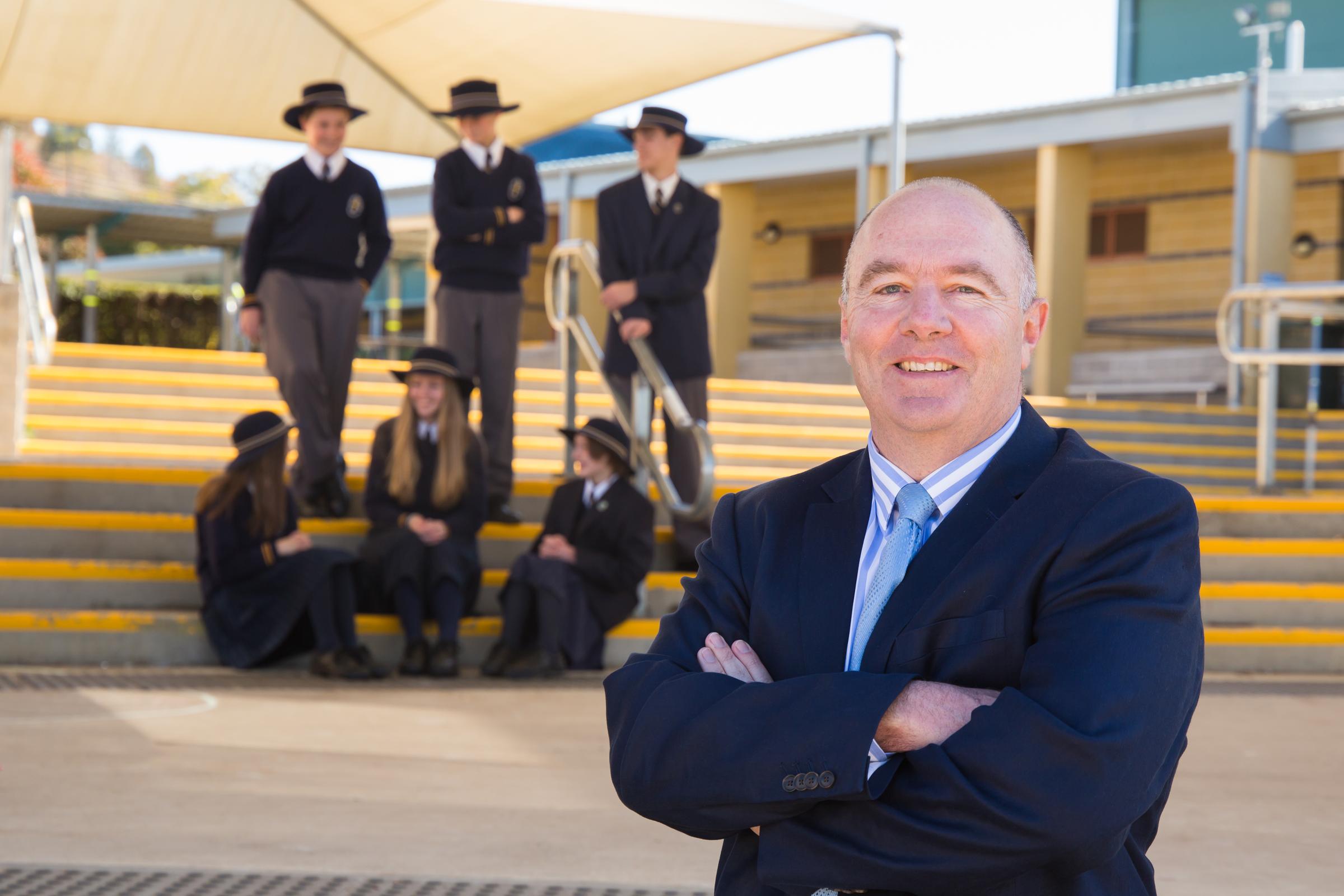Assistant Principal - Pastoral Care

Choices Define Us
Last term I spoke to the students about JD Vance’s autobiography Hillbilly Elegy. This is a powerful story about a young man who grows up in challenging, and at times, traumatic circumstances. JD’s life reminds us that no matter what the conditions or challenges we face in life, we are ultimately masters of our destiny. This is best reflected in his quote: “Where we come from is who we are, but we choose every day who we become.” School provides opportunities for students to build their learning character which will stay with them a lifetime. Young people choose if they are courteous, determined, inquisitive, focused, self-disciplined, persistent and motivated. They choose who they “become”.
Vance’s ideas are reflected in the highly successful novel by Trent Dalton, Boy Swallows Universe. For those unfamiliar, it is about a young boy who grows up in crime and poverty in SE Queensland during the 1980s. He befriends an ex-convict, Slim, who ironically helps him understand how to be a good person in life. At one point Slim says:
“You asked me that in the hospital about the good and the bad, I been thinkin’ about that… I should have told you then that it’s nothing but a choice. There’s no past in it, there’s no mums and dads and no where you comes froms. It’s just a choice. Good. Bad. That’s all there is.”
This fictional text mirrors what JD Vance says about life - we are a product of the choices we make, each and every day - regardless of where we come from.
By the end of the novel we can see how far the boy has travelled when he says:
“Good men are brash and brave and fly by the seat of their pants that are held up by suspenders made of choice. This is my choice, Slim. Do what is right, not what is easy.”
Choosing to knuckle down and concentrate in class is not easy. Choosing to get started on an assessment or seek help outside of class time is not easy. Choosing to make sure that you are packed and ready for school may take some forethought and effort just as moving to class when the first bell goes may not be easy when your friends don’t move. Choosing to walk a few meters to a bin may not appear easy when your friends are happy to dispose of their rubbish at their feet. Choosing to express gratitude or be courteous when it is not ‘cool’ to do so can feel uncomfortable and not easy. Nothing worthwhile ever is easy and so we are defined by the choices we make.
In looking back on his career and life, the esteemed Australian social researcher and commentator Hugh Mackay recently said:
“There’s this thing called human existence. It’s like a vast ocean and we’re a tiny droplet in it. That’s all we’ve got: the brief span; the flickering candle. That should encourage us to maximise the contribution we make while we’re here, to live as kindly as possible. For most of us, our legacy isn’t going to be our work. Our legacy is going to be the influence we had on the people we lived among. The way in which we succeeded or failed in enriching someone else’s life. The people we’ve been kind to.”
Again this is a concept that Mr Whelan emphasises at the end of each assembly. Make sure that when you go home at the end of the day that you have made the day of others better, not worse.
Unfortunately we have been having many intense conversations with students and their parents regarding the choices that some young people make that impacts on their own and others’ learning or wellbeing. Research shows that one of the most significant impediments to learning in a classroom is low-level, persistent unproductive behaviour. In light of this, the rationalisation that ‘it’s just mucking around’ or ‘it’s not that big a deal’ or ‘you’ve got to expect that from teenagers’ or ‘it’s a clash of personality’ is quite dangerous. Dangerous because it can allow a person to exist under the misconception that their unproductive behaviours are natural, justified and acceptable. While we never expect students to be perfect, we do expect that when they are given an opportunity to replace a behaviour they will make a good choice unless they have some clearly identified social, emotional or behavioural difficulty that impedes their capacity to do so.
Everyday our young people are faced with small, seemingly insignificant choices but the cumulative effect is profound. Building the inner strength to do what is “right, not what is easy” is one of the most important capacities students can develop at school. This inner courage or determination or backbone becomes the bedrock for a mature adult life. Helping young people understand that the ‘choices we make define us’ is the work of both home and school. The more consistent we are in expecting this together, the more secure and prepared our young people will be for living a life that is meaningful, worthwhile and fulfilling.
Mr Mick Larkin - Assistant Principal - Pastoral
